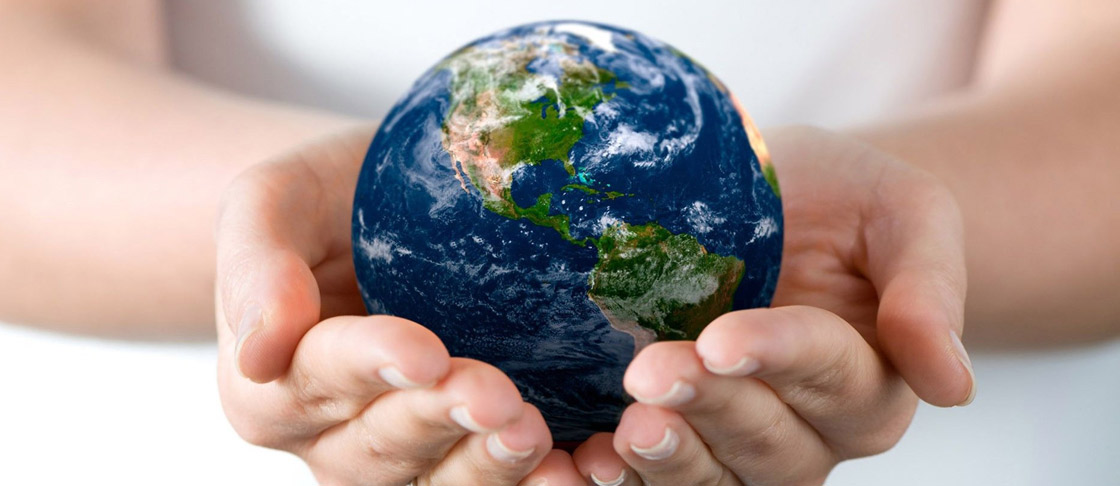Your thoughts shape your reality. Filling your mind with positivity can create a ripple effect of change.
By Abid Hussain Rather
Human society is a complex and delicate system, built on an intricate balance where the collective state mirrors the individual contributions of its members. We all aspire to live in a society that is prosperous and flourishing, where relationships are strong, honest, and rooted in trust, and where every individual experiences peace of mind and soul. But have we ever paused to reflect on the pivotal question: what role are we playing in shaping this better world we dream of?
Often, we overlook fundamental truths about ourselves and the natural order, inadvertently violating the very principles that sustain harmony and balance. This negligence leads us to question the absence of peace, prosperity, and happiness in our lives. Yet, the answers lie within us and the timeless laws of nature that govern our existence.
The First Law: The Void Will Be Filled
One profound natural law states, “If no seed is sown in the field, nature fills it with noxious weeds and useless grass.” This principle resonates deeply with the workings of the human mind. Much like an untended field, a mind left idle or void of constructive input becomes fertile ground for negativity and unproductive thoughts. The saying, “An idle mind is the devil’s workshop,” captures this truth succinctly.
We must, therefore, examine our “mental diet.” Are we consciously sowing seeds of knowledge, positive ideas, and meaningful thoughts? Or are we passively allowing our minds to be overtaken by destructive influences? In today’s digital age, with endless streams of information and conflicting ideologies vying for our attention, the danger of mental clutter is greater than ever. Without deliberate effort, we risk being ensnared in an invisible but insidious trap that fosters apathy, frustration, and negativity.

This principle challenges us to be mindful of what we consume mentally and emotionally. To foster a thriving inner life, we must actively fill our minds with enriching and inspiring content. It is this conscious cultivation of thoughts that shapes a positive and balanced mental state, laying the groundwork for a better self and, by extension, a better society.
The Second Law: You Share What You Carry
Another natural truth teaches us, “One shares only what one has.” This principle underscores the undeniable reality of human influence: the emotions, beliefs, and attitudes we harbor inevitably ripple outward, touching those around us. If we carry joy and gratitude in our hearts, we naturally spread positivity and uplift others. Conversely, if fear, despair, or bitterness dominate our inner world, these emotions will seep into our interactions, creating an atmosphere of negativity.
This law invites us to reflect on the state of our inner world. What emotions and thoughts are we nurturing? Are we unconsciously perpetuating cycles of despair and complaints, or are we intentionally cultivating optimism and resilience? The philosophy behind this principle is clear: our external reality is a projection of our inner state. A person filled with anger or dissatisfaction will, without fail, influence their environment in ways that reflect those feelings.
To build a harmonious society, we must first take responsibility for our emotional and mental well-being. By fostering an inner world characterized by peace, positivity, and balance, we create an environment that encourages growth and harmony for everyone we encounter. The quality of the world we share is ultimately a reflection of the inner life we cultivate.
The Third Law: Learn to Digest Life’s Experiences
The third natural law, “Whatever you attain in life, learn to digest it,” speaks to the importance of balance and humility in the face of life’s achievements and challenges. Just as the body struggles with excess or imbalance in diet, so too does the human spirit falter when faced with unprocessed success or failure.
When we achieve something significant, it is all too easy to become consumed by arrogance or misuse the resources and opportunities that come with it. Similarly, when we encounter failure, dwelling on it without learning from the experience can lead to despair and hopelessness. This law calls for a balanced approach, urging us to integrate our successes and failures into our lives in a constructive way. Each experience, whether triumphant or challenging, offers a lesson and an opportunity for growth.
In a world increasingly driven by ego and competition, this principle asks us to pause and consider: Are we handling our accomplishments with grace and humility? Are we learning from our setbacks, or are we allowing them to define us negatively? By embracing this balanced perspective, we build resilience and wisdom, contributing to a more harmonious and empathetic society.
A Call to Action
These three principles—filling the void with positivity, sharing what we carry, and digesting life’s experiences—form a comprehensive framework for self-improvement and societal transformation. When we consciously apply these laws to our lives, we not only enhance our personal well-being but also inspire positive changes in the world around us.
Ultimately, the kind of society we create depends on the contributions of each individual. If we aspire to live in a world characterized by peace, prosperity, and happiness, we must first embody these qualities ourselves. By aligning our thoughts, emotions, and actions with these natural principles, we offer the greatest gift to humanity: a legacy of balance, positivity, and enduring peace.
The views expressed in this article are solely those of the author and do not necessarily reflect the opinions or views of this Magazine. The author can be reached at [email protected]


Leave a Reply